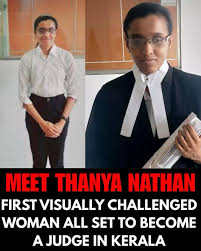Kalyan Jyoti Sengupta, J.@mdashThis application has been taken out by the Petitioner, Assistant Engineer (Electrical), who has been promoted undisputedly following the promotional rules. The order of promotion was not very easy and that was to be cleared after he could come to this Court asking for a direction upon the administration to take steps for examining his case for promotion by the Departmental Promotion Committee. He got promotion in the year 2004 and before her client was promoted, Mr. Mukherjee''s client and Mr. Gopala Binnu Kumar''s client were also promoted by the department in the year 1999 but it was done on ad hoc basis and without following rules and norms laid down for granting promotion.
2. I do not find any provision for granting any promotion on ad hoc basis. Nonetheless, those Respondents were continuously in service on promotion and discharged their duties satisfactorily. Unfortunately, their promotion was kept on ad hoc basis till 2004. However, Mrs. Nag disputed those submissions. I am not entering into the controversy of the matter since ultimately those Respondents were regularized by granting promotion in the year 2004. The order of regularization has not been challenged by the Petitioner as the Petitioner is not aggrieved by the said order. This writ petition is challenged against fixation of seniority list. The Administration has taken into consideration of the initial appointment on promotion of all the Respondents in 1999. According to the Petitioner, the service period on ad hoc basis on promotion can not be counted for the purpose of fixing the seniority. Mr. Anjili Nag appearing for the Petitioner has drawn the attention of the Court to the decision of the Hon''ble Supreme Court on this issue reported in
3. The Court, while entertaining individual action, can not take up any issue which is not alleged nor argued by any of the parties. Leaving aside the said issue, I need to look into whether the seniority should be accepted in this case, taking into consideration of initial promotion order on ad hoc. The Constitution Bench of Supreme Court in the case of the
44. To sum up, we hold that -
(A) Once an incumbent is appointed to a post according to rule, his seniority has to be counted from the date of his appointment and not according to the date of his confirmation. The corollary of the above rule is that where the initial appointment is only ad hoc and not according to rules and made as a stop-gap arrangement, the officiation in such post cannot be taken into account for considering the seniority
(emphasis supplied).
(B) If the initial appointment is not made by following the procedure laid down by the rules but the appointee continues in the post uninterruptedly till the regularization of his service in accordance with the rules, the period of officiating service will be counted.
(C) When appointments are made from more than one sources, it is permissible to fix the ratio for recruitment from the different sources, and if rules are framed in this regard they must ordinarily be followed strictly.
(D) If it becomes impossible to adhere to the existing quota rule, it should be substituted by an appropriate rule to meet the needs of the situation. In case, however, the quota rule is not followed continuously for a number of years because it was impossible to do so the inference is irresistible that the quota rule had broken down.
(E) Where the quota rule has broken down and the appointments are made from one source in excess of the quota, but are made after following the procedure prescribed by the rules for the appointment, the appointees should not be pushed down below the appointees from the other source inducted in the service at a later date.
(F) Where the rules permit the authorities to relax the provisions relating to the quota, ordinarily a presumption should be raised that there was such relaxation when there is a deviation from the quota rule.
(G) The quota for recruitment from the different sources may be prescribed by executive instructions, if the rules are silent on the subject.
(H) If the quota rule is prescribed by an executive instruction, and is not followed continuously for a number of years, the inference is that the executive instruction has ceased to remain operative.
(I) The posts held by the permanent Deputy Engineers as well as the officiating Deputy Engineers under the State of Maharashtra belonged to the single cadre of Deputy Engineers.
(J) The decision dealing with important questions concerning a particular service given, after careful consideration should be respected rather than scrutinized for finding out any possible error. It is not in the interest of service to unsettle a settled position,...
4. The decision in the case reported in AIR 1997 SC 621, the Supreme Court held in paragraph 7 that if any promotion is made on ad hoc basis after, regularization ad hoc period can not be taken into consideration for the purpose of determining seniority.
5. In these circumstances, I am constrained to hold that the period served by the Respondents on ad hoc basis can not be counted for the purpose of seniority in terms of the Constitution Bench judgment, but other benefits can be given. Another decision of the Supreme Court has been brought to the attention of this Court which was rendered in the case of
6. In the conclusion, I set aside and quash the seniority list impugned here, therefore direct the Municipal Council to re-fix the seniority list on the basis of substantive order of promotion having been granted to the respective parties without taking into consideration of length of service rendered on ad hoc basis. It will be better for the Municipal Council if a separate seniority list is prepared in respect of the different cadres if possible. However, I can not give any direction in this regard it is made clear that the Municipal Council is to take a decision accordingly. I, direct the Municipal Council to examine this aspect whether a separate seniority list can be prepared for the separate cadre.
7. With the aforesaid observation and direction, I dispose of this writ petition without any order as to costs.

